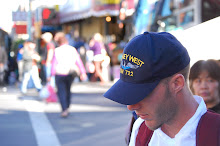Whether or not the "6+5 rule" sweeps through Europe into England, two foreign players arrived in January who would not be hampered much by the regulation.
Andre Arshavin, the little Russian, and Nigel De Jong, the stacked Dutchman, each brought a unique European flair—and world class—when they were suited to England.
Grace and skill translates visually but words cannot always justify the edges, the fine margins between good and great.
Essentially, 90 percent of professional footballers can do 90 percent of the tricks and skills. Class lies in the final 10 percent.
De Jong and Arshavin's class are of the world variety.
The warring Dutchman
De Jong himself fills the defensive role in midfield so many teams pine after.
The bottom half of the Premier League table is littered with clubs who struggle largely out of a void in the center, just as mostly all more successful teams have a holding player in his mold.
One of the first names during the Netherlands' muster, the 24-year old bunker captain holds down the fort with a crooked helmet while his attacking teammates snipe and maneuver. His bootstraps tightly fastened, he is well fortified, with plenty of ammunition and stores to see out the winter.
The reliable, compact muscle-man owns his space. He's the bouncer at the night club you can't get into. Players pass through with his permission. If he loses the ball, he will track you down and either foul you or take it back or both. Even his facial hair is class.
Every team in competitive, modern European football need this type of combative central player, especially in overly tactical UEFA Champions League settings.
De Jong can use both feet to turn and pass, and his distribution is very economical and sometimes even forward-incisive. He appears to take certain care to bend passes with either feet into the stride of his teammates, which is often overlooked but a sure sign of class.
His partnership with Vincent Kompany—renewed from their chummy Hamburg days—makes the central midfield of Manchester City the toughest in England.
From Russia with class
Of course, the team who needed De Jong most—Arsenal—instead got the type they needed least.
The Gunners squad is replete with stylish winger/support-striker hybrids. Rosicky, Nasri, van Persie, Vela, Da Silva, Fabregas, and even Theo Walcott—who is becoming a more out-winger—all bring great beauty and romance to a flowing attack, at the shameless cost of expense of steel, bottle, and graft.
Though occupying a similar position, and general mold, to his new teammates, Andre Arshavin is none of these players. The style he brings to any attack is quite unique.
The shifty Russian may have the best feet in all of England. He uses both, at will, and shifts effortlessly in between. His balance sets him apart. He can move left or go right, with either foot, convincingly, and have enough poise and craft to turn again, or not, to no end, while other renowned attackers turn once and are committed.
The nimble little bugger, cheeks red, hasn't taken time to settle in London, contrary to another Russian in town, rival Spurs' Pavyulchenko—with whom Arshavin does not socialize, to the delight of Gunner fans.
In seven games for Arsenal, spark-plug Arshavin has a goal and four assists, statistics which paltrily render his true effect on the field. He picks apart defenses like a cold-war KBG operative, with patience and subterfuge, craftily evading clumsy approaches from less-trained Western agents.
Tourists in England?
And now the two Europeans are plying their trade in England, as most players abroad seem to vie towards at some point in their careers.
But not all their hopes will be realized, especially as the "6+5 rule" necessarily surges throughout European footballing institutions.
The rule, currently championed by the presidents of Fifa and Uefa, decrees six of 11 starting players on any team in Europe must be nationals of the domestic country.
Such a regulation would bring youth development, training, and club loyalty back into a European game dominated by generally British easy-money spending, hostile takeover bids, immediate gratification, and purchased success.
But the cogs of political change move slowly, so England will continue to stage more and more of Europe's best talent until the dogma, greed, and lobbying hopefully succumb to the populist regulation.
And as Man City travel to Arsenal on Saturday, bask in the ineffable particulars: the soft edges of class both De Jong and Arshavin express on grass in-form, and don't worry; they'd be top six on any club side in England for many years anyways.
Wednesday, April 1, 2009
Subscribe to:
Posts (Atom)




